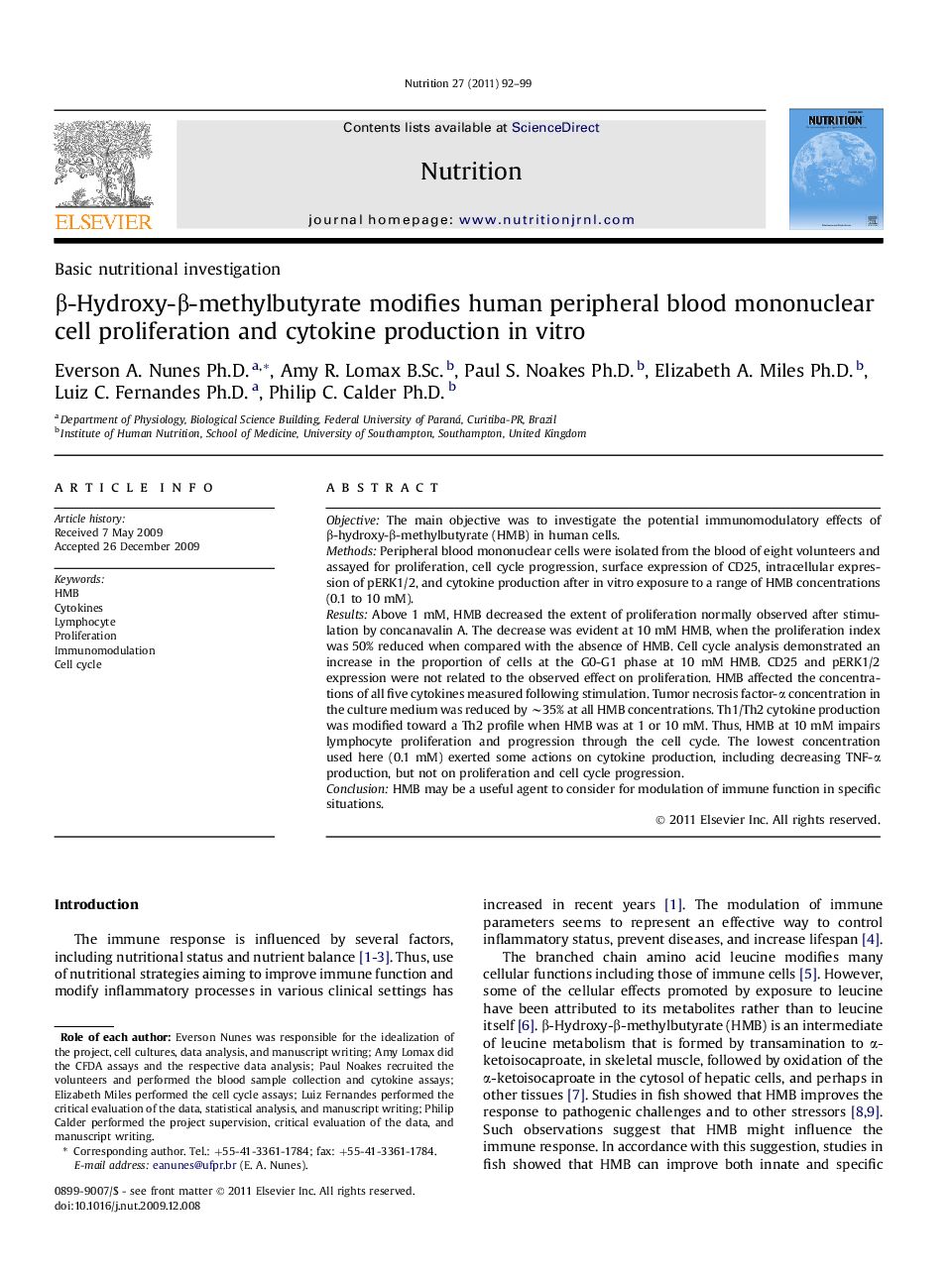| Article ID | Journal | Published Year | Pages | File Type |
|---|---|---|---|---|
| 3276763 | Nutrition | 2011 | 8 Pages |
ObjectiveThe main objective was to investigate the potential immunomodulatory effects of β-hydroxy-β-methylbutyrate (HMB) in human cells.MethodsPeripheral blood mononuclear cells were isolated from the blood of eight volunteers and assayed for proliferation, cell cycle progression, surface expression of CD25, intracellular expression of pERK1/2, and cytokine production after in vitro exposure to a range of HMB concentrations (0.1 to 10 mM).ResultsAbove 1 mM, HMB decreased the extent of proliferation normally observed after stimulation by concanavalin A. The decrease was evident at 10 mM HMB, when the proliferation index was 50% reduced when compared with the absence of HMB. Cell cycle analysis demonstrated an increase in the proportion of cells at the G0-G1 phase at 10 mM HMB. CD25 and pERK1/2 expression were not related to the observed effect on proliferation. HMB affected the concentrations of all five cytokines measured following stimulation. Tumor necrosis factor-α concentration in the culture medium was reduced by ∼35% at all HMB concentrations. Th1/Th2 cytokine production was modified toward a Th2 profile when HMB was at 1 or 10 mM. Thus, HMB at 10 mM impairs lymphocyte proliferation and progression through the cell cycle. The lowest concentration used here (0.1 mM) exerted some actions on cytokine production, including decreasing TNF-α production, but not on proliferation and cell cycle progression.ConclusionHMB may be a useful agent to consider for modulation of immune function in specific situations.
